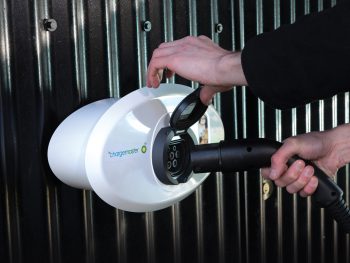MPs warn of National Grid blackouts if EV charging habits don’t change
Transport Committee’s new report states that charging an electric vehicle should be convenient, straightforward, and inexpensive; and that energy demand should be managed with ‘little and often’ charging compared to conventional refuelling habits.
MPs on the Transport Committee have delivered a set of recommendations to Government to boost the production and purchase of electric vehicles as the net zero deadline approaches.
Questions remain on whether the Government’s current plans are enough to deliver the public charging infrastructure needed across all regions of the UK and whether it will benefit everyone, says the report. Accessible and reliable charging infrastructure must be available by 2030 but drivers who live in rural or remote areas or who don’t have off-street parking risk being left behind.
Unless charging habits change, or the National Grid is strengthened, concerns exist that the charging needs from millions of new electric vehicles will cause blackouts to parts of the country.
The Government must:
• Work with the National Grid to map national coverage to eradicate ‘not-spot’ areas and identify locations where the Grid will not cope with additional usage
• Make public charge provision a requirement of local development and provide funding for local planning and transport bodies to hire staff with a mandate to deliver charging infrastructure
• Protect the consumer from excessive charges and multiple accounts when charging in public
• Address the discrepancy between the 5% VAT incurred for home charging and 20% VAT for on-street
• Insist that industry uses price to change consumer charging behaviour to a ‘little but often’ approach and at times when the National Grid can meet total demand
• Boost the manufacturing and sales of new electric vehicles by requiring those who sell the fewest electric vehicles to buy credits from those who produce the most; such credit to then be used to reduce the purchase price of electric vehicles (the ‘ZEV Mandate’).
With charging at home substantially cheaper than on-street charging, pricing must be fair for people who charge their electric vehicles in public spaces. The Committee welcomes the Government’s commitment to regulate interoperability between charge points and pricing transparency for public charge points later this year. However, mandating industry to use pricing to move consumer behaviour towards a ‘little and often’ refuelling habit will also help.
Government must also introduce a zero emission vehicle mandate as a matter of priority if it is to hit its target of 100% new zero emission vehicles (ZEVs) by 2035. A ZEV mandate would incentivise car manufacturers to steadily increase sales of zero emission vehicles towards the 2030 target for all new vehicles to have ‘significant zero emission capability’. This would bring ZEV vehicles within reach of more consumers encouraged by cost-effective ways to support purchases compared to taxpayer-funded incentives. A stronger marketplace generated by an increased vehicle supply from global manufacturers to the UK market would also bring down costs.
Chair of the Transport Committee, Huw Merriman MP said: “The Government’s inclusion of a ZEV mandate in a recent consultation is welcome but not enough on its own. Charging electric vehicles should be convenient, straightforward and inexpensive and drivers must not be disadvantaged by where they live or how they charge their vehicles. Shifting the subsidy from the taxpayer to the manufacturer will incentivise those who deliver the fewest electric vehicles in our showrooms to up their game. Unless the National Grid gains more capacity, consumer behaviour will have to alter so that charging takes place when supply can meet the additional demand. The alternative will be blackouts in parts of the country.”
Responding to the Government’s report, Jack Cousens, head of roads policy for the AA, said: “For most drivers, the opportunity to charge an EV in their garage, on their driveway or in a dedicated parking space offers cheaper running costs. However, for the 30% of homeowners with no access to dedicated off-street parking or workplace charging, they have no choice but to pay the rates set on the public charging network.
“On the road to electrification, we cannot allow one group of drivers to benefit while others struggle – in effect, a two-tier system of have and have-nots. An independent body overseeing the fees being charged on the public network would help reassure drivers that they are paying a fair price.
“Rather than focusing on tying manufacturers up in red tape to meet EV sales targets, we need to improve the incentives offered to consumers to buy electric vehicles. Scrapping VAT would be the most influential policy to help spark the electric revolution.”













